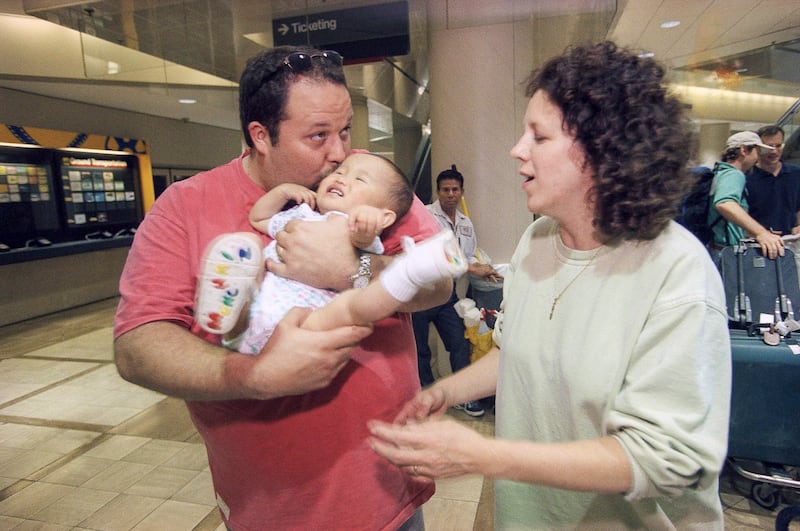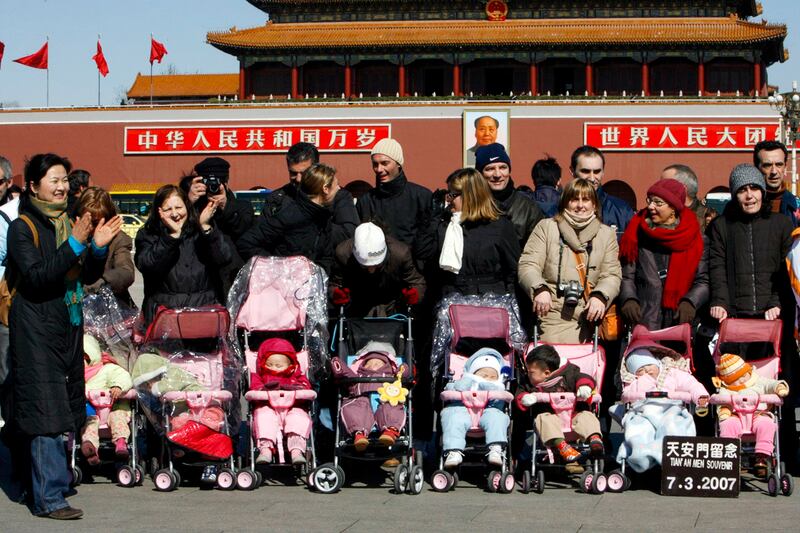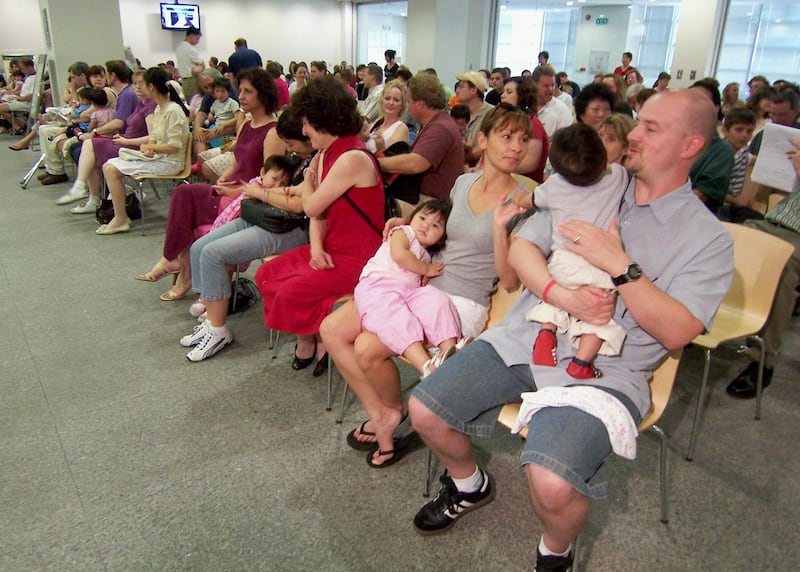[ Read this story in Mandarin.Opens in new window ]
China has called a halt to foreign adoptions of its children, leaving hundreds of families in a state of fear and uncertainty about the status of pending applications.
When foreign ministry spokesperson Mao Ning confirmed on Sept. 5 that "China will not send children abroad for adoption," families whose adoptions had been started but not yet finalized were left in uncertainty.
As U.S. officials sought clarification on behalf of would-be American parents, the Manns were among those waiting in shock and anxiety at the prospect of not being able to follow through on their pledges to give a home to Chinese children, many of whom were unlikely to find another option than remaining in an orphanage until adulthood.
"We started in May 2019," Brittany Mann told RFA Mandarin in a recent interview. "We thought, oh, it will take maybe one year, because our other son's adoption took one year."
The Manns had planned to travel to China in May 2020 to bring their new son home from the central city of Zhengzhou.
They had already sent him a birthday gift and set up a new bedroom for their prospective son, and filled it with toys and clothing for him.

But then, the pandemic struck, plunging China into lockdown and international travel bans. All adoptions were placed on hold, while the ruling Chinese Communist Party used stringent controls on people's movements to try to contain the coronavirus.
The Manns were devastated, and very concerned for the boy's future.
"Our son needs some medical medical care that is very important," Mann said. "Since he is older, he was available for domestic adoption the last few years, but nobody has adopted him domestically."
Mann said the family had also found the sudden break in their plans very tough on a personal level.
"We were crying," she said. "It was very, very hard news because we really thought we would get to go to China and try to adopt our son. We feel like we really want him to still have a family and we want him to be a part of our family."
‘Win-win’
Mann said she sees transnational adoption as a "win-win" for families and children alike.
"China wins, the U.S. government wins," she said. "We think it could be ... a good situation for everyone if they let us adopt."
According to the latest advisory from the State Department, civil affairs departments across China "will no longer carry out adoption work," unless the prospective parents already have a family relationship with the children concerned.
"We know this announcement caused great concern for prospective adoptive parents who have been matched with Chinese children through the Hague adoption process," the Sept. 6 advisory said.

It said the State Department is "seeking written clarification ... regarding the impact on intercountry adoption cases already in process."
Ryan Hanlon, the president of the non-profit advocacy group National Council For Adoption, said "hundreds" of American families are in a similar situation to the Manns.
"The news that China will be ending intercountry adoption is very disappointing, primarily for the children who will continue to live in orphanages instead of families, but also for the families who have been matched with a child for adoption and have waited years, only to learn this sad news," Hanlon said following Mao's announcement.
"Hundreds of families had been approved by China's government for adoption and have faithfully waited more than four years, beginning with COVID-19 shutdowns until now," he said, calling on both governments to work together in the interests of the children.
Only hope
Joshua Zhong, co-founder of Cherish Children Adoption International, the world's largest Chinese child adoption agency, said international adoptions were often the only hope that children with disabilities and medical needs have to grow up in a loving family.
"Particularly over the past 15 years, almost all adopted children have special needs," Zhong told RFA Mandarin. "Human traffickers mostly don't want children with severe special needs, and the hope of them getting adopted into permanent families in China is also very slim."

Some 30% of foreign children adopted by American families between 1999 and 2023 were from China, accounting for some 800,000 children.
Around 20% of orphaned children in China are in child welfare institutions like orphanages, while a further 275,000 children are living with families who may or may not be related to them, according to the Ministry of Civil Affairs.
China has said the ban on international adoptions is in line with its commitments under international covenants on the protection of children, which state that countries should make every effort to ensure that children remain in their country of birth.
Emails and calls to the China Adoption Center to inquire about the reasons for the ban had gone unanswered at the time of publication by RFA Mandarin.
Translated by Luisetta Mudie. Edited by Malcolm Foster.
